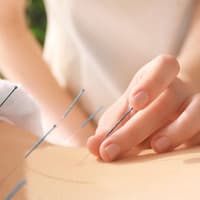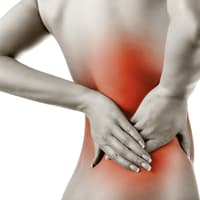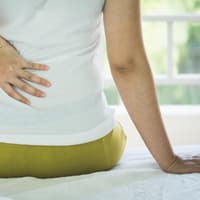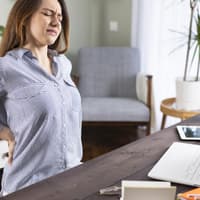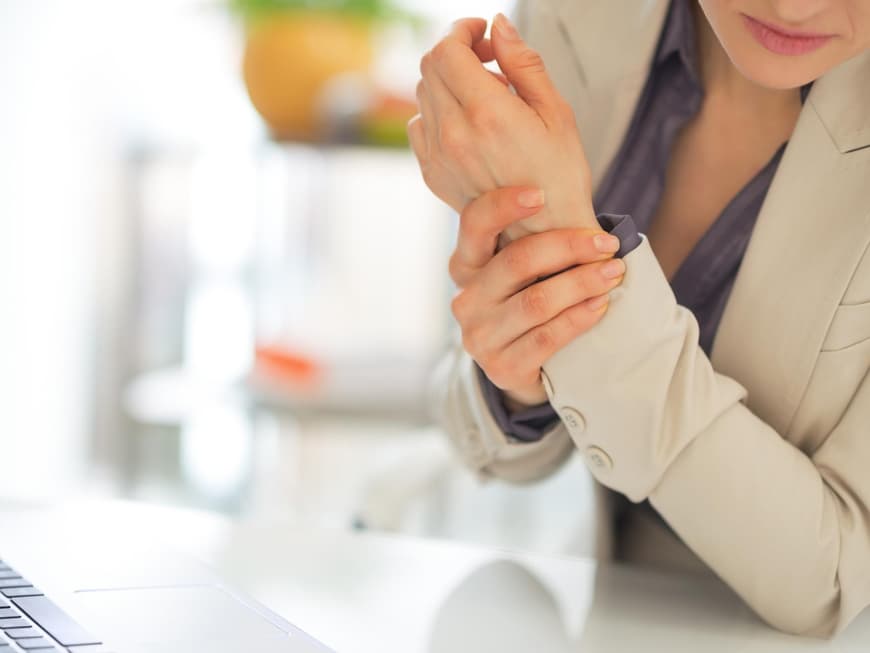
Whether you would have thought it or not, there are also many health risks lurking in the office! And that means: if employees don't take care of themselves, typical office illnesses, such as dry eyes and back pain, are soon on the horizon. And these are not just unpleasant. They also often result in days off work. Alternatively, those affected continue to struggle to get to work but are anything but productive, which experts call presenteeism. A phenomenon that is becoming increasingly common in the world of work. The German Society for Occupational and Environmental Medicine (DGAUM) in Munich has now pointed this out. This naturally raises the question: how can PC workers protect themselves from the many typical office illnesses? Especially from the seven most common ones? We'll tell you.
Dry eyes
Our eyes perform at their best. But staring at the PC makes them drier. We blink less and they become less moisturized. As a result, they burn and are tired. Prevention is key! Make sure you blink often (approx. 15 times per minute) and take a short break every 30 minutes or so to let your eyes wander into the distance. Rub the palms of your hands warm and place them on your closed eyes.
Hand pain
We are busy typing on the PC keyboard and using the mouse. If we overload the tendons in our arms, they become inflamed. If you don't want it to get that far in the first place, a palm rest in front of the keyboard and an ergonomic mouse will relieve the strain on your hands. Exercise is also good for you. For example: Stretch your arms slightly forward and open and close your hands quickly 20 times in succession. Stretch and stretch your arms in between and shake your hands.
Headaches
When we are under time pressure, we involuntarily pull our shoulders up and the muscles in our neck and shoulders become tense. This often results in headaches. But that's over now! Do small relaxation exercises, e.g.: let your arms hang relaxed and let your shoulders circle. Then interlock your fingers at chest height. Now pull your shoulder blades together and your fingers apart (approx. ten seconds). No time for this? A gentle alternative is peppermint oil, e.g. in Euminz (pharmacy).
Heartburn
Oh dear, the lunch break was only short today. So the schnitzel and chips were devoured in no time at all. But that soon takes its revenge! The back of my sternum suddenly burns like hell. Concentration suffers and we have only supposedly saved time. Better: enjoy a smaller meal in peace at lunchtime, the mineral water doesn't contain too much carbon dioxide and the clothes don't constrict anywhere. Especially not in the gastrointestinal tract.
Stomach ache
The combination of pressure to perform and fear of failure can quickly upset the stomach. This can help: make a list and work through it in order of priority. As soon as something is done, put a tick next to it. This gives us an initial sense of achievement. And instead of despairing when something doesn't work out at the first attempt, we motivate ourselves with the words: "Don't worry, you can do it! You can do it! ..."
Back pain
Staying upright and still at the table is something many of us learned as children. But it's not good for your back at all. It even promotes pain. And that's why back pain is not just one of the typical office ailments, but can now even be described as a widespread disease. We should change position every 15 minutes. Even rocking is recommended by experts! The reason: dynamic sitting activates the back muscles, relieves pressure on the intervertebral discs, activates various muscles and stimulates blood circulation. If possible, stand up from time to time, for example when talking on the phone, and take the stairs instead of the elevator.

